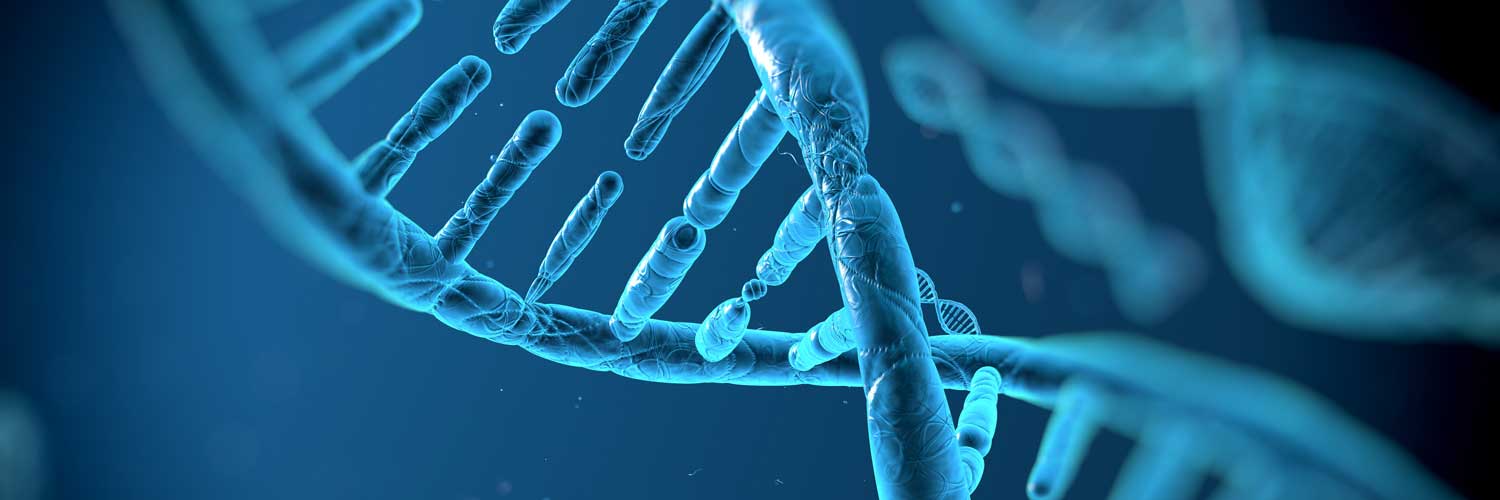Key points of LGBTQ+ fertility services
- To have children of their own, many LGBTQ+ couples and individuals need assisted reproductive treatments from a fertility clinic that involve eggs, sperm or an embryo provided by a third party.
- LGBTQ+ assisted reproduction is generally referred to as third-party fertility.
- Fertility service options depend on the LGBTQ+ individual’s or couple’s reproductive systems and include using an egg, sperm or embryo donor or using a gestational carrier (surrogate) to carry a pregnancy.
- These assisted reproductive treatments are achieved through in vitro fertilization (IVF) or intrauterine insemination (IUI).
- LGBTQ+ patients can also have infertility issues that our fertility treatments can address.
- Ember has partnerships with law firms that specialize in third-party fertility and we can refer our LGBTQ+ patients to them for expert counseling.
- Ember’s fertility specialists are highly experienced in providing compassionate guidance for LGBTQ+ patients in all aspects of treatment success and well-being.

At Ember, everyone is a VIP – very important patient
And we have a thing for the small things: Each Ember patient gets a dedicated fertility coordinator, a patient’s personal care guide through every clinic detail, from the very first phone call to meeting your little miracle. Schedule your appointment today using our online self-scheduling tool.
What are LGBTQ+ assisted reproductive treatments?
The assisted reproductive treatment options used to assist LGBTQ+ couples and individuals achieve their family building goals have been utilized in reproductive medicine for years. These fertility services enable LGBTQ+ patients to have a child of their own by medically substituting eggs, sperm or embryos, products of the male or female reproductive systems necessary to conceive that the LGBTQ+ couple or individual cannot provide. Because these are obtained from other people, LGBTQ+ assisted reproduction is often called third-party fertility.
LGBTQ+ individuals and couples may also experience other infertility issues that can require fertility treatments. About 10% of the population experience infertility, according to the National Institutes of Health.
The success of these assisted reproductive treatments (also called assisted reproductive technologies) depends on many factors. These include sperm and/or egg health, the condition of the parties’ reproductive systems, as well as the overall health of the individual carrying the pregnancy.
Fertility testing for LGBTQ+ couples and individuals
Fertility testing plays a critical role in the family-building process for all patients, regardless of gender or sexual orientations. As such, all LGBTQ+ patients undergo a basic reproductive health assessment prior to initiating treatment. This fertility testing is essential to determine if the individuals have infertility issues and if their reproductive systems are in sound condition for the third-party fertility treatments they will need.
The first step of fertility testing begins with a comprehensive conversation about medical history and a physical exam. If applicable, this should include both individuals in a couple.
Other specific fertility testing will depend on indications of the individual’s fertility health, if any issues are evident or suspected, and the assisted reproductive treatment appropriate for the LGBTQ+ individual or couple.
Sonohysterography (SHG), semen analysis & other fertility tests
Testing for those with female reproductive systems can include a pelvic exam, bloodwork to determine reproductive hormone levels and a saline infused sonohyterography (SHG or SIS), which uses ultrasound to evaluate the uterus, the endometrial lining and the ovaries.
Testing for those with male reproductive systems mostly involves a semen analysis to determine sperm quality and quantity. Physical examination may reveal structural issues that need to be corrected.
If it appears from health history that an individual or couple might have an inheritable abnormality such as cystic fibrosis, our specialist may recommend preconception genetic testing. This can assist with preventing birth defects in a child as well as disclosing whether or not preimplantation genetic testing should be done to screen subsequent embryos created through IVF for genetic defects that can prevent a successful pregnancy or result in birth defects in the child.

Why our LGBTQ+ patients feel comfortable at Ember
- Our fertility specialist Dr. Freije has helped many LGBTQ+ patients have children of their own.
- One of our own LGBTQ staff members went through third-party IVF and is now the father of a 5-year-old child. We are all so proud of him!
- You have an individual patient care coordinator who is your helpful guide and personal resource through all aspects of care and interaction at Ember.
- You will not be in a high-volume fertility clinic but in a boutique practice dedicated to spending quality time serving your needs and addressing your concerns.
- Your doctor will see you at every visit, developing a finely detailed understanding of your medical condition while getting to know you as a person.
- Our clinic is designed with the patient in mind, from the smallest details that provide a comfortable environment to the way we have streamlined administrative services.
LGBTQ+ fertility treatments based on IVF or IUI
Family building treatments effective for LGBTQ+ patients rely on donations from third parties and the use of either IVF or IUI to transfer these items to the intended parent(s). Some patients will need another person to carry the pregnancy and deliver the child, which is also achieved through IVF.
IVF is a multi-step process for all hopeful parents including:
- Ovarian stimulation and egg retrieval (from the patient or an egg donor).
- Fertilization of the eggs with sperm (from the patient or a donor) in the lab.
- Embryo transfer to the woman’s uterus (either the patient or a gestational carrier/surrogate).
Reciprocal IVF for couples with female reproductive systems
Reciprocal IVF is similar to a standard IVF procedure, but in this case, one female or transgender male partner’s eggs are retrieved and combined with donor sperm to create embryos. The other female or transgender male partner will carry the pregnancy, so the embryo is transferred to that person’s uterus.
The steps both partners go through are identical to those in standard IVF, including ovulation induction, egg retrieval and embryo implantation.
Intrauterine insemination (IUI)
For lesbian couples and individuals, transgender men or those with female reproductive systems who have no infertility issues, IUI may be a suitable, low-cost option.
Our fertility specialist injects prescreened and cleaned donor sperm into the “active” patient’s uterus at the time of ovulation. We generally use oral or injectable fertility medication to increase the chances of fertilization. IUI places the sperm closer to fallopian tubes where fertilization occurs, in effect giving the sperm an easier journey to the egg than it has in natural conception.
Using donor eggs, donor sperm or donor embryos
The use of donor eggs, donor sperm or donor embryos may be necessary for LGBTQ+ people. All of these treatments utilize aspects of IVF. Donors of sperm, eggs or embryos may be known or anonymous to the recipient.
The patient can select an anonymous donor through a donation agency, which includes a database of qualified candidates. Patients can get information through the agency about the potential donor’s physical characteristics, race, educational background, health, personality and more. Ember has relationships with such donation agencies and our providers will assist patients in their use.
A known donor can be a family member or friend. Some patients find it helpful to have a relationship with the donor. The benefit of a family member is that the subsequent child will have a genetic connection to the LGBTQ+ parent.
All donors undergo strict screening and testing protocols to ensure that the specimens they provide are healthy and have the potential for a successful pregnancy in another person.
Using donated eggs
An LGBTQ+ couple without a female reproductive system between them, which includes a gay couple, requires a donated egg and IVF to achieve pregnancy. The donor egg will be fertilized by one of the partner’s sperm or donated sperm through IVF in the lab.
The donated eggs can be divided into two groups, and each partner’s sperm is used to fertilize one group of eggs. Our specialists will determine the healthiest embryos that result. We will implant the embryo(s) in the intended parent’s womb for pregnancy or in a gestational carrier who carries the pregnancy. The parents can learn which of their genes is in the embryo or choose to leave that unknown.
Ember’s LGBTQ+ patients can choose from egg bank donations, which are frozen eggs, or from our own fresh (not frozen) donor eggs.
Donor sperm
Couples that do not have a male reproductive system, including lesbian couples, require donor sperm to have a child. Donated sperm generally comes from a sperm bank, which allows the recipient to view characteristics of the potential donor to match possible traits desired in the child.
Someone who can produce sperm gives a semen sample to the sperm bank, where the sperm is evaluated under strict protocols. Once the intended parent(s) selects a donor, that sperm is sent to our lab, where it is used in IVF to fertilize an egg. The resulting embryo is implanted in the recipient parent’s womb, or to a gestational carrier if the intended parent cannot carry a pregnancy.
Donor embryos
LGBTQ+ people may use a donated embryo because it eliminates the IVF step of fertilization of the egg by sperm to create an embryo, which may not be successful. We receive a frozen donated embryo, thaw it and implant it in the intended parent (or gestational carrier) for pregnancy. The resulting child will not have the genetics of either intended parents, but they will experience the joy of pregnancy and the birth of their child.
Healthy embryos become available when more than one embryo is created through IVF, but the parents do not need the additional embryo(s). Patients may be able to use a frozen, healthy embryo donated by a couple who have used our fertility services and decided their family is complete. We can also help patients find a donated embryo through other services. Ember partners with the Snowflakes embryo donation service.
Our overview on embryo donation
Gestational carriers or surrogates
Some LGBTQ+ patients, especially gay male couples, may need assistance in carrying the pregnancy. In these cases, utilizing a gestational carrier is the recommended process to build a family. This involves a woman who will carry an embryo created through IVF using another person’s eggs and sperm, or possibly a donated embryo.
The gestational carrier will not be genetically related to the child. A traditional surrogate is impregnated by artificial insemination using the intended parent’s sperm or donor sperm. Since her egg is fertilized, a traditional surrogate is genetically related to the child.
For several reasons, gestational carriers are preferred over a traditional surrogate. Ember assists LGBTQ+ patients obtain a gestational carrier and coordinates all aspects of treatment.
Legal considerations & emotional resources
Consulting an attorney to outline the rights, responsibilities and roles of all parties involved in egg, sperm or embryo donation is important. Such legal advice is particularly helpful when a gestational carrier is used.
That’s why we have partnered with law firms that specialize in the often complex legal particulars of third-party fertility and offer both expert advice and compassionate understanding. Ember can guide our LGBTQ+ patients in this area and refer them to our legal partners.
We also understand that some patients may face emotional challenges with third-party fertility. Our providers and the patient’s personal care coordinator can help with such issues and refer LGBTQ+ patients for psychological counseling with a professional experienced in third-party reproduction.




